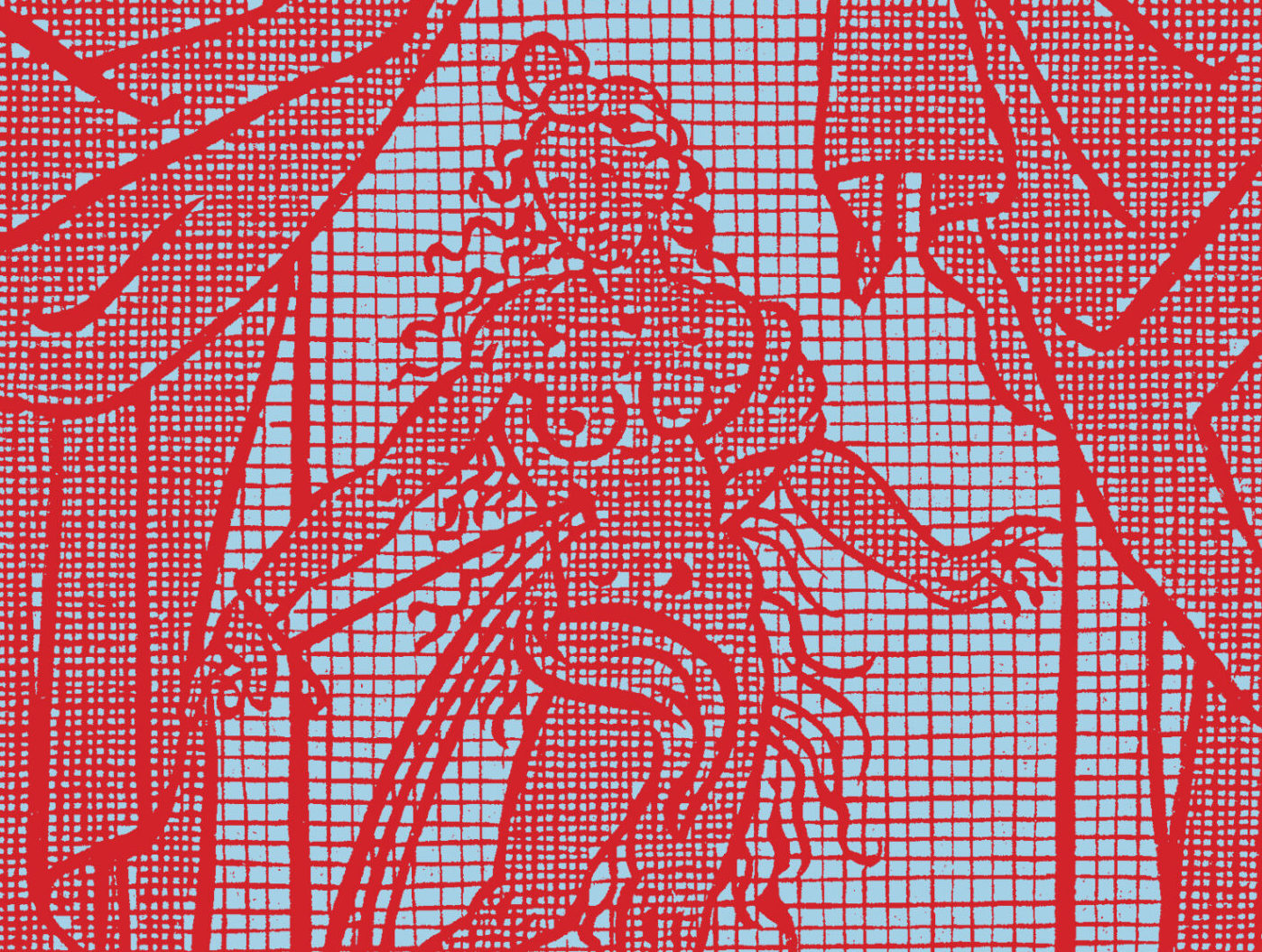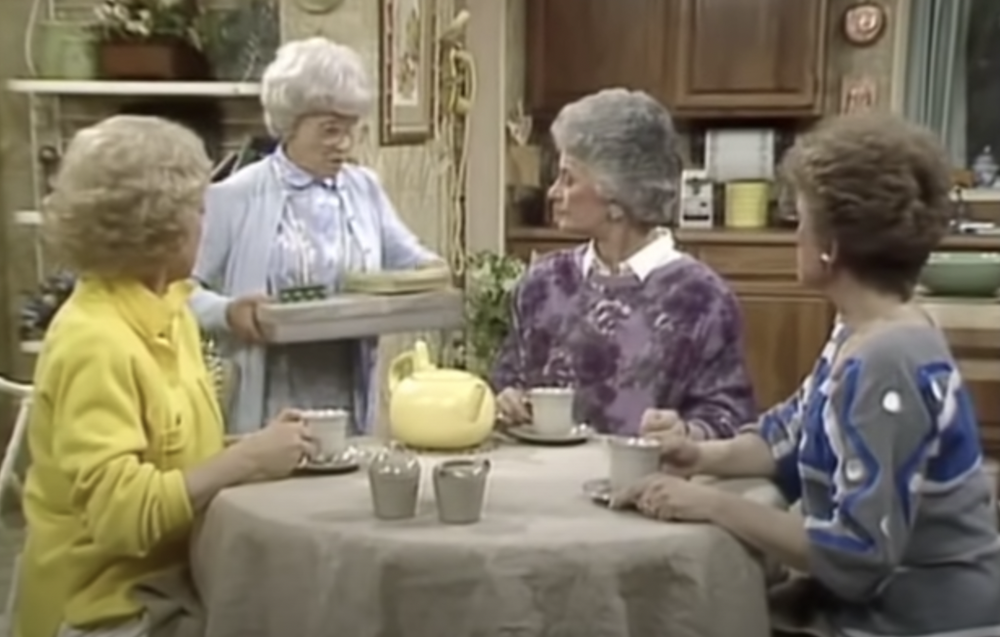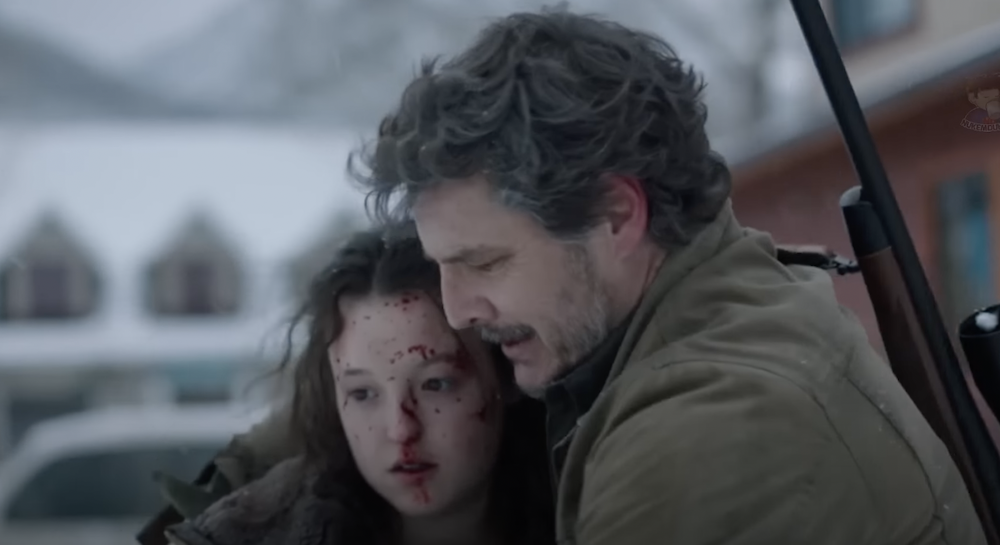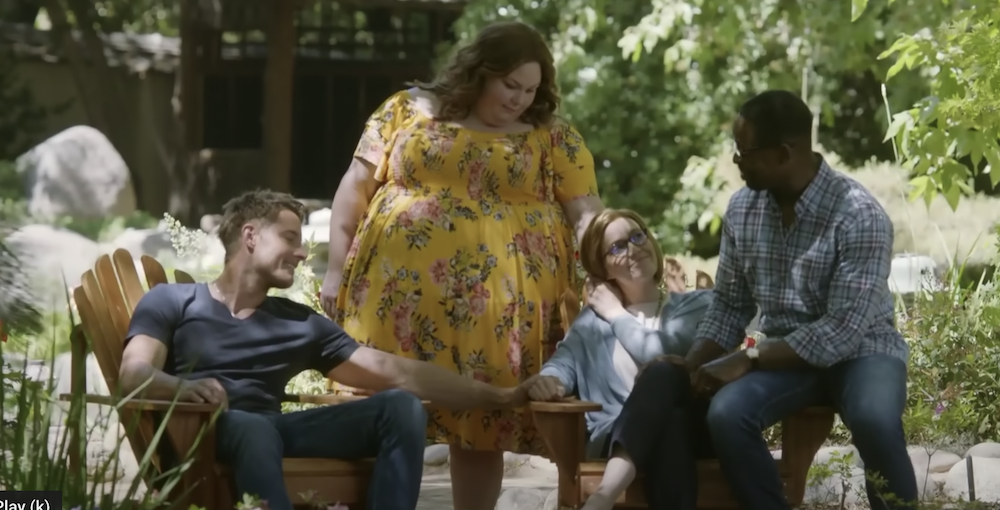Books & Culture
I Was My Mother’s Daughter, and Then I Was Stuck With My Dad
Apple TV’s “Shrinking” toes the line between my personal fantasy and reality of being raised by a grieving single father
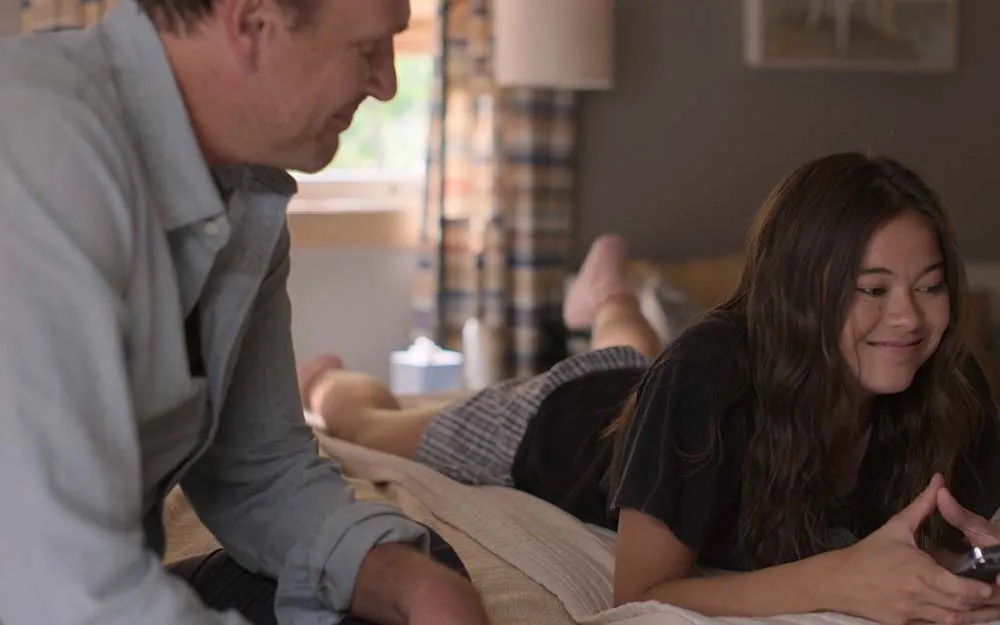
After his wife dies in a sudden car crash, Jimmy Laird numbs his pain for a year. He stays up all night, drinking and doing coke and paying for some kind of company with women. He’s not healing, but he is coping. He tries to stifle his grief, which is so much easier than actually feeling it. Understandable, except he is a therapist, and a father.
He knows better. He should be present for his daughter, not partying in his backyard while his teenager is in the house. Shrinking, an Apple TV show created by Bill Lawrence, the same person behind Ted Lasso, opens with one of these nights. Jimmy, played by Jason Segel, is drinking and doing drugs on the side of his backyard pool while two young women are swimming in their underwear. His neighbor Liz breaks up the party and asks, “Where’s Alice?”
Jimmy answers, “Oh, she’s asleep.”
He fumbles, and he betrays, and he is selfish, and—he tries.
Except the teenage daughters of single dads know when our dads have lost it. We aren’t asleep in the house while they’re partying in the backyard. They can’t keep anything from us.
I have watched countless movies and shows that include a dead mother. They are everywhere. Some of them care about the nuances of young grief, and some of them kill off the mother just to add generic trauma for their characters. Shrinking, though, is about the single dad that is left when a mom dies. It is about the parent who is still there, not the one who is gone. The trying-but-failing Jimmy is sometimes so recognizable to me I can’t watch. Jimmy wants to be a good dad more than he acts like one. He fumbles, and he betrays, and he is selfish, and—he tries.
When my mother died, I was in fourth grade and my brother was in eighth. Before our mom got sick, our parents divided their roles: she was with us, and he went to work. Some days he came home to have dinner with the family and went back to the office afterwards. During the year she spent undergoing cancer treatments that were never meant to save her, she tried to prepare him for what was coming. She taught him how to make some of our favorite dinners, including the roast chicken with the sauce we lapped up using slices of crusty French bread. I was my mother’s daughter, and then I was stuck with my dad, who forced me to play basketball and forgot to pick me up from school. He was his wife’s husband, and then he was stuck with two kids screaming in grief. No one wanted this version of our family. We all wished we weren’t stuck together like this. And he had lost too much to be there for us with the immediacy and fullness we needed.
Movie and TV single dads take many forms. Some are valiant in their efforts to be present for their daughters. They fight for them, even when it’s awkward, like when Alice Laird’s godmother Gaby (played by Jessica Williams) encourages Alice to tell Jimmy that she has had sex. Alice isn’t sure, but Gaby tells her she thinks Jimmy can be cool about it. “Please, let me be Cool Dad,” Jimmy begs Alice, promising that whatever she’s about to tell him, he can handle. He isn’t quite cool, but he gets there.
Some are like Marlin in Finding Nemo, who swims across the entire ocean to find his son. In cartoons especially, single dads are heroic. Others are like Danny Tanner in Full House, incredibly earnest and present and constant. And in many cases, the dads don’t matter at all—the mom dies and then the child is completely on their own. There is no dad. Absent fathers exist, too, and substance-abusing and violent dads exist, but they are one part of the story, and they aren’t the story I know. I know Jimmy.
In the first episode of Shrinking, we understand that Jimmy has been a mess for a full year. Now, though, he is going to turn it all around. He is tired of accepting what he cannot change. We watch him get so frustrated with his cognitive behavioral therapy clients that he decides to become a therapist vigilante. He tells one client that she has to leave her husband or he won’t be her therapist any longer. He gets attached to a young veteran with rage issues, Sean, and invites Sean to live in his guest house. He decides he is ready to be present for Alice again. The problem is, she isn’t ready for him.
Some afternoons, I came home from middle or high school and found my father alone in the house, gleefully playing Guitar Hero on our Wii or the harmonica I bought him for Father’s Day, taking each step down the hallway like a dance move. There was joy in the house, sometimes. But single fathers are unpredictable. Some days I came home to my father and brother screaming at each other and I hid under the stairs until I heard my brother slam his door above me. Often, my dad wasn’t home at all. He filled the fridge, handed me cash, and left. I didn’t know if he would be around, or what version of him I might find, so as I got older I practiced never expecting him. Largely, I took care of myself.
My junior year of high school, my dad moved from Marin to Southern California and I stayed behind. He had a struggling business in Palm Springs he needed to do something about. I convinced him it would ruin my chances at a top college to switch schools halfway through high school. I found a friend whose parents would let me stay with them for the year and packed up my room. My dad asked me to call him every day, which I sometimes did, and he came to town for major events like junior prom, but we spent the year apart. In some ways, my junior year was a blast. I was free, with no curfew and barely any adult supervision. Every night was a slumber party with my best friend. At the same time, I was miserable, lonely—terrified of my life being alternately in my control and out of it. I didn’t know if my dad was coming back. I looked into the process of emancipation, but it was too scary, too big.
As I got older, I practiced never expecting him. Largely, I took care of myself.
When he came back for my senior year and we lived together again, he tried to parent me. He gave me a curfew. He knocked on my door in the mornings and told me I would be late for school; when I left the house I went to Starbucks first. He took my car keys when he discovered an empty Smirnoff bottle, the evidence that I had thrown a party. But it all felt false. He had been gone. For a year he was physically in a different part of the state, but he had been emotionally checked out for much longer. I wasn’t ready for him to try to come back. My dad and Jimmy have this in common: they expected us, their teenage daughters, to patiently wait for them to parent us whenever they felt like it again.
My brother was older and already out of the house, technically an adult, and my last year of high school was in some ways our dad’s last chance. But I think my brother might have accepted my father’s parenting, even under these conditions. Maybe there is oldest daughter syndrome at play here, too: I always had to take care of everyone, I was always the adult, even as the younger sibling.
Jimmy comes back to parenting life in small steps. He makes Alice breakfast. He washes her soccer jersey, once he is told by Liz that the soccer season has started. Then Alice tells him, directly, to his face, that this isn’t enough. This is what Shrinking does for me. I can’t imagine telling my father that he wasn’t doing enough—I was so busy trying to be in charge of myself, planning my own route for getting to college and out of the house, and being understanding about how sad and preoccupied my father was, I had no ability—no language—to ask him for more. Alice says, “For a year you’ve been acting like it happened to you, but it happened to us.” My mom’s death happened to my dad, and to my brother, and to me. We went through it separately, but Shrinking shows me another version, an alternate reality to live out.
Maybe I wouldn’t have been left so alone if it seemed like I needed help in school.
Shrinking also knows something that my dad did not, or maybe that he just wasn’t able to accommodate: single dads can’t do it alone. Not if they want to do it well. Alice is surrounded by therapists and her neighbor, Liz, whose last son has just left for college. Alice is the perfect solution to Liz’s empty nest syndrome. One of the pleasures of Shrinking is that it knows it uses Liz as an aggressively maternal figure, so Liz regularly insists to the other adults that she is more than just a mom. She is cool, she promises. She has multiple tiny tattoos and a best friend who moved to Australia. But with Alice, she is such a Mom, because that’s what Alice needs.
When Jimmy is “back in the game,” as the show describes his efforts to actively parent his daughter, he attends a meeting with Alice’s guidance counselor, a man who earlier iced Jimmy’s face after he was punched at Alice’s soccer game. Jimmy is late to the meeting. By the time he arrives, Liz and the guidance counselor are already talking. Liz offers to leave the meeting, but as soon as she is out the door Jimmy can’t answer a question about Alice’s AP courses next year and he calls Liz back in. I thought about this scene for days.
My dad didn’t go to college, and my brother went to a large state school for one year before dropping out. I don’t remember my dad ever asking me what classes I wanted to take, or if I had done my homework, but probably because he didn’t have too. Maybe I wouldn’t have been left so alone if it seemed like I needed help in school. Maybe I did too well in school for anyone to notice that they should probably be checking on me.
There may have been women around who would have stepped in, like Liz. I know one of my dad’s girlfriends would have loved to be there for me, but unfortunately for her, she had been my mom’s friend, and my dad started dating her only six months after my mom died. I had to hate her. There were family friends who loved me. They stepped in when I was young, driving me to and from ballet when my dad couldn’t. But by the time I was a teenager, my loss wasn’t fresh. I watch Shrinking like a fantasy: what might have happened if I had had this many adults looking out for me? How might I have felt?
I was alone and trying so hard to figure out what kind of person to be.
There were also times while I watched Shrinking I had to look away from the screen. I couldn’t watch when Jimmy got so drunk at a party he was hosting that he threw up on the piano, and then slept with Gaby, who had been his wife’s best friend. I couldn’t watch a dad fuck up that badly. I also couldn’t stomach him sleeping with one of the women who was there for Alice when he wasn’t. Harder to watch, though, are the moments when three different non-relative adults fight to help Jimmy and to take care of Alice. I am so jealous I can hardly breathe.
Harrison Ford (who plays a character named Paul but I want to call him Harrison, or maybe Dad), makes Jimmy promise that his vigilante therapy will not harm Alice in any way. Jimmy nods but that isn’t enough for Harrison. “Promise!” he shouts, until Jimmy finally verbally promises. Of course, Jimmy breaks his promise again and again. He can’t help it. But Harrison is there for Alice in multiple ways. He sticks up for her with Jimmy, continuously pushing him to do right by Alice. (Paul’s own failings with his now-grown daughter are only part of his motivations.) He also meets with Alice regularly. They share snacks on a park bench and Alice makes fun of Harrison’s hat and he teaches her a technique he uses for his own processing: put on the saddest song you can and grieve hard and intentionally for exactly fifteen minutes a day. No more, no less.
I watched much of Shrinking while looking at my phone. That is how I watch most things these days. But Shrinking in particular, I couldn’t look at it directly. To watch too closely would be like looking full-faced into the sun of my teenage years. I have only recently been able to look back on my adolescence and feel sad for what I didn’t have. I powered through my loss, asking for extra credit and piling on extracurriculars and thinking that if my teachers liked me enough, I would be safe. But I got older and teachers were temporary, then indifferent. I rejected the guidance counselor sessions I was offered in middle school because I didn’t want to need them. Then the offers stopped. I was alone and trying so hard to figure out what kind of person to be. No one told me I could be sad, or that I could spend 15 minutes a day actually feeling my grief. I couldn’t watch all these adults surround and defend Alice, ask her questions, offer her support.
Jimmy is a father, but he is also a man so wrecked by his own grief that he loses himself. How could anyone be an excellent parent while dealing with one of the hardest losses, while trying to upright their lives, when everything around them has been reconfigured? Jimmy looked like an actual single dad to me. Not like the pristine versions I have seen so many times, who make little mistakes and ask forgiveness, but like mine. Big efforts, but even bigger mistakes. If Jimmy was the only adult around, Alice would have been on her own. Like I was.




